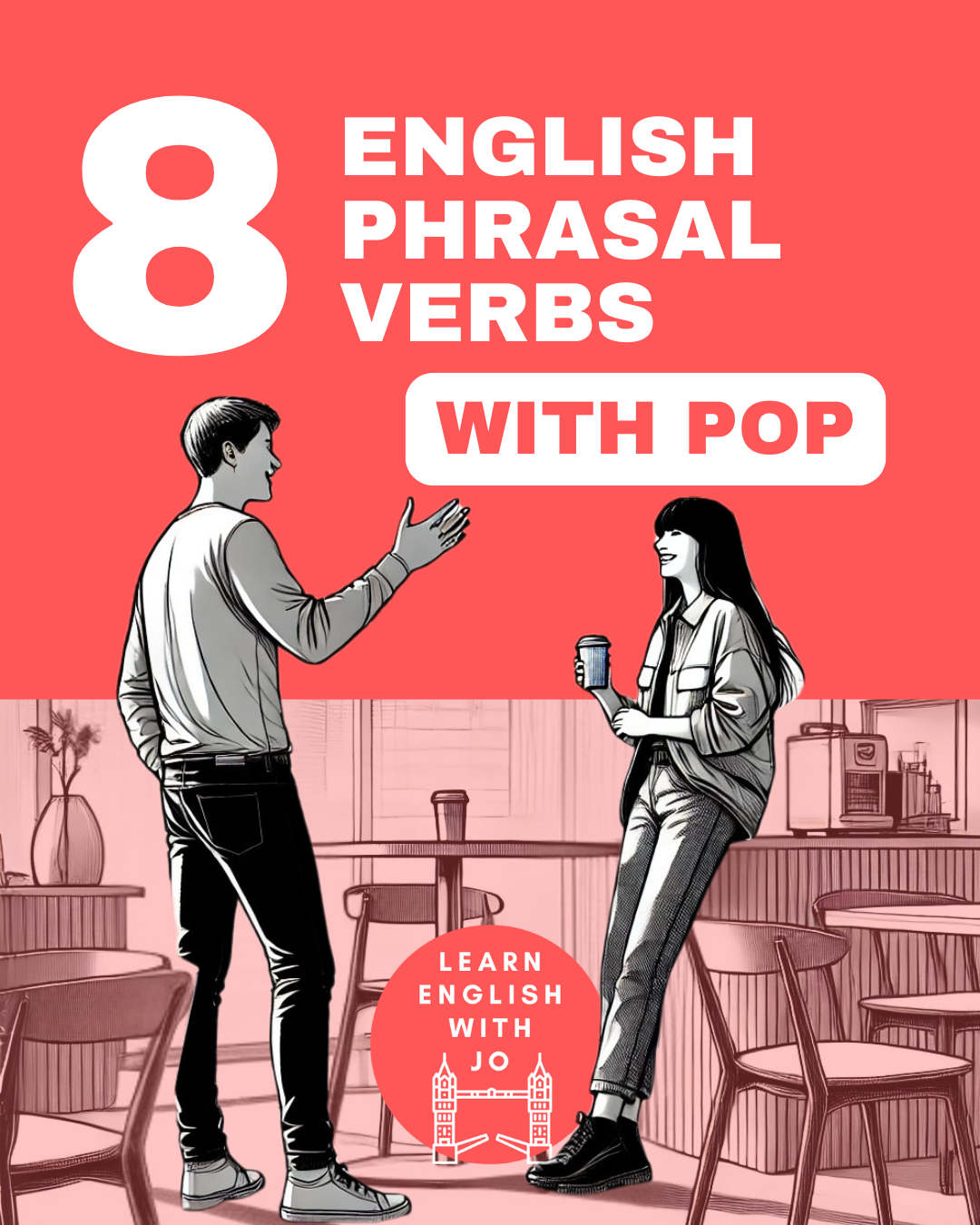8 Phrasal Verbs with Pop: How to Use Them Naturally in English
There’s something quite charming about the word ‘pop,’ isn’t there? It’s short, snappy, and full of energy. And in English, we use it in a variety of phrasal verbs to describe quick, unexpected actions or movements. Many of these expressions are particularly common in British English, especially when talking about casual visits or short trips.
Using ‘pop’ phrasal verbs in spoken English adds a sense of lightness and spontaneity to your speech. Instead of saying ‘I am going to visit my friend quickly,’ you can simply say, ‘I’ll pop in to see my friend.’ It’s quicker, more natural, and sounds effortlessly fluent.
So, if you want to sound more natural and expressive in English, here are some essential phrasal verbs with ‘pop’—along with examples to help you use them with confidence.
1. Pop in
Meaning: To visit briefly or quickly drop by.
If you ‘pop in’ somewhere, you’re not staying long—just a quick visit. It’s often used when talking about informal visits to friends, shops, or offices.
I’ll pop in to see you after work.
Could you pop in to the pharmacy and grab my prescription?
2. Pop out
Meaning: To leave a place for a short time, often to run an errand.
This is especially common in workplace settings, where people ‘pop out’ to grab lunch or do something quickly.
I’m just popping out to get a coffee—want anything?
She popped out to the post office and should be back soon.
3. Pop up
Meaning: To appear suddenly, often unexpectedly.
This can refer to people, ideas, or even online ads (the dreaded pop-ups!).
A brilliant idea just popped up in my head!
A little café has popped up near my flat—it looks lovely.
4. Pop off
Meaning: To leave quickly
The meaning is quite casual, often used when you’re heading somewhere quickly.
I’m just popping off to the shop—be back soon!
He popped off a while ago. I’m not sure when he’ll be back.
5. Pop on
Meaning: To put something on quickly, like clothes or music. Or turn something on, like the radio or the kettle.
This is a lovely, informal way of talking about adding something quickly.
Let me just pop on a jumper—it’s chilly in here.
Shall I pop on some music while we cook?
Could you pop the kettle on please? I could do with a cup of tea.
6. Pop back
Meaning: To return to a place briefly.
This one’s super common in everyday English. If you ‘pop back’ somewhere, you go back quickly but don’t plan to stay long.
I left my phone at home—I need to pop back and get it.
Can you pop back later? I’m in a meeting right now.
7. Pop round
Meaning: To visit someone, usually informally and often at their home.
This one is very common in British English and is used for casual visits.
Why don’t you pop round for a cup of tea later?
I’ll pop round to see my mum after work.
8. Pop over
Meaning: To visit someone, usually informally, often with a sense of crossing a short distance.
‘Pop over’ is similar to ‘pop round,’ but it’s often used when the visit involves a slight journey, like walking to a neighbour’s house or driving a short distance.
I’ll pop over later with those books I promised you.
She popped over to her friend’s house for a quick chat.
Why not try using these in your daily conversations? Next time you’re leaving the house, say, ‘I’m popping out for a bit!’ and see how it feels.

